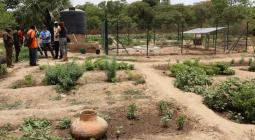UN General Assembly: only 15% of SDGs achieved seven years before the deadline

“Rebuilding trust and rekindling global solidarity: accelerating action to achieve the 2030 Agenda and its Sustainable Development Goals (SDGs) for peace, prosperity, progress and sustainability for all” . This is the theme leading the work of the 78th United Nations General Assembly, which opened today in New York. On the menu of the various workshops: war in Ukraine, political crises, but also the 85% that the international community lacks to successfully achieve the 17 SDGs in 2030.
Several political and economic leaders as well as representatives of civil society are participating in the United States of America in the 78th session of the General Assembly of the United Nations (UN). Before the traditional General Debate of Heads of State and Government - the largest diplomatic meeting in the world which begins this Tuesday September 19, 2023, a conference which was held the day before on the evaluation of the 17 sustainable development goals ( SDGs) allowed the various delegations to note that “only 15% of the SDGs have been achieved” to date.
This report sounds the alarm, particularly for countries which are lagging behind in the implementation of this program adopted in 2015. In Africa, this includes, for example, Ethiopia and Sudan facing armed conflicts. (Tigray war, war of the generals) which have compromised SDG2 on food security through the decline in agricultural productivity, the increase in the prices of raw materials to the great detriment of the food supply of the populations.
An economic and environmental impasse
In addition to the fighting, natural phenomena have been singled out by UN teams as 2030 approaches. This is the case of East and West Africa which have respectively experienced prolonged droughts (Somalia , Kenya) and a succession of floods (Côte d'Ivoire, Guinea, Benin). So many climatic hazards have destroyed schools, power lines and the habitats of several animals, thus undermining the efforts made in recent years in terms of education (SDG4), electrification (SDG7) and preservation of biodiversity (SDG15).
In a recent report that it published on the sidelines of the discussions in New York, the Food and Agriculture Organization of the United Nations (FAO) goes further by indicating that “ the planet has lost 100 million hectares of healthy and productive land since 2015 . A regression which worries environmental defenders and which should probably relaunch the debate around the preservation of the Congo basin considered to be the second green lung of the planet after the Amazon. Moreover, DR Congolese President Félix Tshisekedi, who is participating in the work, should say a word about it in his speech at the UN.
Financing sustainable development
If his counterparts from Russia, China, France and England, also permanent members of the Security Council, were conspicuous by their absences from this Assembly, the path of a “reform of the current global financial system” remains. well and truly on the menu as was the case during previous international meetings, notably the African Climate Summit in Nairobi, Kenya, the BRICS Summit in Cape Town, South Africa and the G20 Summit in India. This vision supported by American diplomacy should make it possible to move forward in the fight against socio-economic disparities from one continent to another in a context marked by the difficult access of southern countries to capital.
Moreover, Antonio Guterres, the Secretary General of the UN, has made a habit of hammering home during his latest official outings his proposal to “ mobilize 500 billion dollars to support developing nations in order to ensure that they have resources needed to achieve the SDGs . In any case, considerable efforts remain to be made so that several African countries are up to date on both gender equality (SDG5) and universal access to water and sanitation (SDG6). An equation that is still difficult for rural areas in Madagascar which have an open defecation rate of 42%, according to figures from the World Bank.








